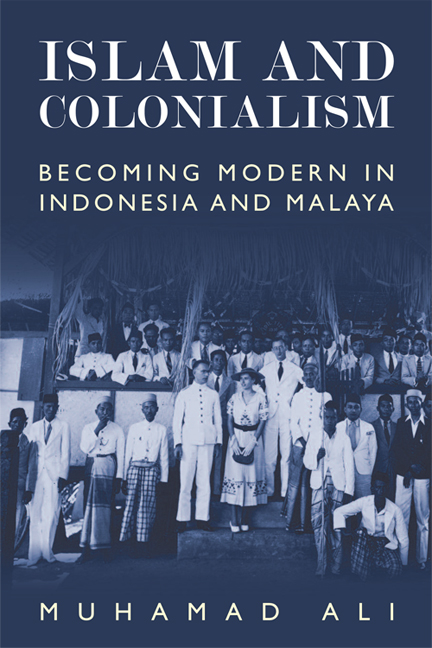Book contents
- Frontmatter
- Contents
- Glossary
- Acknowledgements
- List of Abbreviations
- Transcriptions and Orthography
- Map
- Introduction
- Part I Making Islam Modern
- Part II Modernising Politics and Government
- III Building Siyasah and Reforming Sultanate
- IV Controlling Politics and Bureaucratising Religion
- Part III Modernising Law
- Part IV Modernising Education
- Conclusion
- Bibliography
- Index
III - Building Siyasah and Reforming Sultanate
from Part II - Modernising Politics and Government
Published online by Cambridge University Press: 05 September 2016
- Frontmatter
- Contents
- Glossary
- Acknowledgements
- List of Abbreviations
- Transcriptions and Orthography
- Map
- Introduction
- Part I Making Islam Modern
- Part II Modernising Politics and Government
- III Building Siyasah and Reforming Sultanate
- IV Controlling Politics and Bureaucratising Religion
- Part III Modernising Law
- Part IV Modernising Education
- Conclusion
- Bibliography
- Index
Summary
The Sarekat Islam has been criticized for showing hatred (I. permusuhan) against the government and the Dutch people in the East Indies, but our leaders work hard, sincerely, and truthfully so that such negative comment against our movement may be avoided, and that the government could put trust on Muslim people and our movement because what we aim is what all aim: to reach progress (I. kemajuan).
(Partondo 1914)Indeed, the English are an army of God, the Lord of the worlds, who has ordered them to come here to free us from darkness, the prison of ignorance, injustice, wickedness, and cruelty of our own rulers.
(Al-Hadi 1926)Politics comprises various kinds of leadership in theory and in action, in educational, economic and social and even household policies. In ‘Politics as a Vocation’, Weber focuses on the political association of a state (1958 [1921]: 77), but he also observes that ‘an essentially political character marked all the main ordinances of Islam’, because of Islam's interest in challenging enemies, regulating sexual behaviour, prohibiting usury, supporting the poor and even in proclaiming that God is one and Muhammad is his messenger (1993 [1922]: 263–4). For Snouck (a contemporary of Weber), Hendrik Kraemer and other colonialists, ‘religion’ was different to but inseparable from ‘politics’ in Islam. Snouck, for instance, observed that Muslim political authorities needed to keep the community in the right path in its life and doctrine (Snouck 1916: 84–5). However, Snouck did not address how Muslims disagreed on the meanings and means of politics. In Malaya, Muslims used politics and siyasah sometimes interchangeably alongside other terms for leadership and government. The Arabic term ‘siyasah’ has no exact equivalences in the Qur'an and the hadith, but Muslims have used it to mean ‘politics’ both in theory and practice (see Ayubi 1993; Qardhawi 2007; Martin and Barzegar 2010). This chapter examines how Muslim reformers in colonial Indonesia and Malaya articulated politics, and how they related to the caliphate, the colonial state and the traditional governments. Mostly uninterested in supporting or renewing the caliphate, many Indonesian Muslims began to appropriate and build politics, some cooperating with the Dutch and others not, whereas many Malay reformers sought to reform the Malay society, without rejecting the British-sultan modernisation projects.
- Type
- Chapter
- Information
- Islam and ColonialismBecoming Modern in Indonesia and Malaya, pp. 107 - 136Publisher: Edinburgh University PressPrint publication year: 2015

